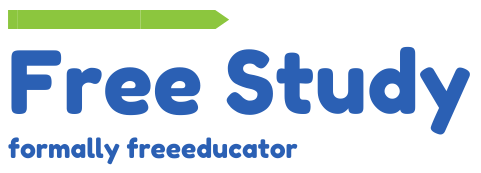Direct democracy, sometimes called “pure democracy,” maybe a sort of democracy during which all laws and policies imposed by governments are determined by the people themselves, instead of by representatives who are elected by the people.
In a pure direct democracy, every law, bills, and even court rulings are voted on by all voters.
Table of Contents
Direct vs Representative Democracy
Direct democracy is that the opposite of the more common representative democracy, under which the people elect representatives who are empowered to make laws and policies for them. Ideally, the laws and policies enacted by the elected representatives should closely reflect the desire of the bulk of the people.
Read More: Pros and Cons of Unions-Essay Tips
While the United States, with the protections of its federal system of “checks and balances,” practices representative democracy, as embodied in the U.S. Congress. Therefore the state legislatures, two sorts of limited direct democracy are practised at the state and native level: ballot initiatives and binding referendums, and recall of elected officials.
Ballot initiatives and referendums allow citizens to place—by petition—laws or spending measures typically considered by state and local legislative bodies on statewide or local ballots. Through successful ballot initiatives and referendums, citizens can create, amend, or repeal laws, as well as amend state constitutions and local charters.
Direct Democracy in the United States
In the New England region of the United States, towns in some states such as Vermont use direct democracy in town meetings to decide local affairs. A carryover from America’s British colonial era, the practice predates the founding of the country and the U.S. Constitution by over a century.
Read More: College Essay Example – Pros and Cons of Homeschooling
The framers of the Constitution feared that direct democracy could lead on to what they called the “tyranny of the bulk .” for instance, Madison, in Federalist No. 10, specifically involves a constitutional republic employing representative democracy over a direct democracy to shield the individual citizen from the desire of the bulk.
“Those who hold and people who are without property have ever formed distinct interests in society,” he wrote, continuing, “Those who are creditors, and people who are debtors, fall under a like discrimination.
A secure business, a generating interest, a mercantile interest, a moneyed interest, including several lesser interests, age-old certainly in advanced countries, and separate them into separate groups, actuated by mixed sentiments and opinions.
The management of these different and interfering interests forms the primary task of new legislation. It includes the spirit of party and concern within the necessary and ordinary acts of the government.”
Read More: College Essay Tips on Pros and Cons of Euthanasia
In the words of Declaration of Independence signer John Witherspoon: “Pure democracy cannot subsist long nor be carried far into the departments of state—it is very subject to caprice and the madness of popular rage.” Hamilton agreed, stating that “a pure democracy if it were practicable, would be the foremost perfect government.
The practice has shown that no profession is more wrong than this. The ancient democracies during which the people themselves deliberated never possessed one good feature of the state. Their very character was tyranny; their figure, deformity.”
Despite the framers’ intentions at the beginning of the republic, direct democracy in the form of ballot initiatives and referendums are now widely used at the state and county level.
Examples of Direct Democracy: Athens and Switzerland
Perhaps the simplest example of direct democracy existed in ancient Athens, Greece. While it excluded women, enslaved people, and immigrants from voting, Athenian direct democracy required all citizens to vote on all major problems with the government.
In the most prominent example in modern society, Switzerland practices a modified sort of direct democracy under which a vote of the general public often vetoes any law enacted by the nation’s elected branch. Besides, citizens can vote to require the national legislature to consider amendments to the Swiss Constitution.
Read More: Pros and Cons of Obamacare-Essay Tips
Pros and Cons of Direct Democracy
While the idea of having the ultimate say-so over the affairs of government might sound tempting, there are some good—and bad—aspects of direct democracy that need to be considered:
Pros of Direct Democracy
Full Government Transparency
Without a doubt, no other sort of democracy ensures a greater degree of openness and transparency between the people and their government. Discussions and debates on major issues are held in public. Besides, all successes or failures of the society can be credited to—or blamed on—the people, rather than the government.
More Government Accountability
By offering the people an immediate and unmistakable voice through their votes, direct democracy demands an excellent level of accountability on the part of the govt. The government cannot claim it had been unaware of or unclear on the desire of the people. Interference in the legislative process from partisan political parties and special interest groups are largely eliminated.
Greater Citizen Cooperation
In theory, at least, people are more likely to comply with laws they create themselves happily. Moreover, people who know that their opinions will make a difference, they more eager to take part in the processes of government.
Read More: Pros and Cons of Brexit – Essay Tips
Cons of Direct Democracy
We Might Never Decide
If every American citizen were expected to vote on every issue considered at every level of the state, we’d never choose anything. Between all of the issues considered by local, state, and federal governments, citizens could spend all day, every single day voting.
Public Involvement Would Drop
Direct democracy best serves the interest of the people when most of the people participate in it. As the time required for debating and voting increases, public interest, and participation within the process would quickly decrease, resulting in decisions that didn’t truly reflect the desire of the majority. In the end, small groups of individuals often with dangerous axes to grind, could control the govt.
One Tense Situation after Another
In any society as large and diverse as that within us, what’s the prospect that everybody will ever happily accept as true with or a minimum of peacefully take decisions on major issues? As recent history has shown, not much.
Read More: Animal Testing Pros and Cons – Essay Tips
Conclusion
Even though democracies are affirmed as superior over other classes of government, a general political malaise is discernable in Western nations. Now, citizens are more disillusioned with politics.









 College Essay Tips – Pros and Cons of WiFi Calling
College Essay Tips – Pros and Cons of WiFi Calling